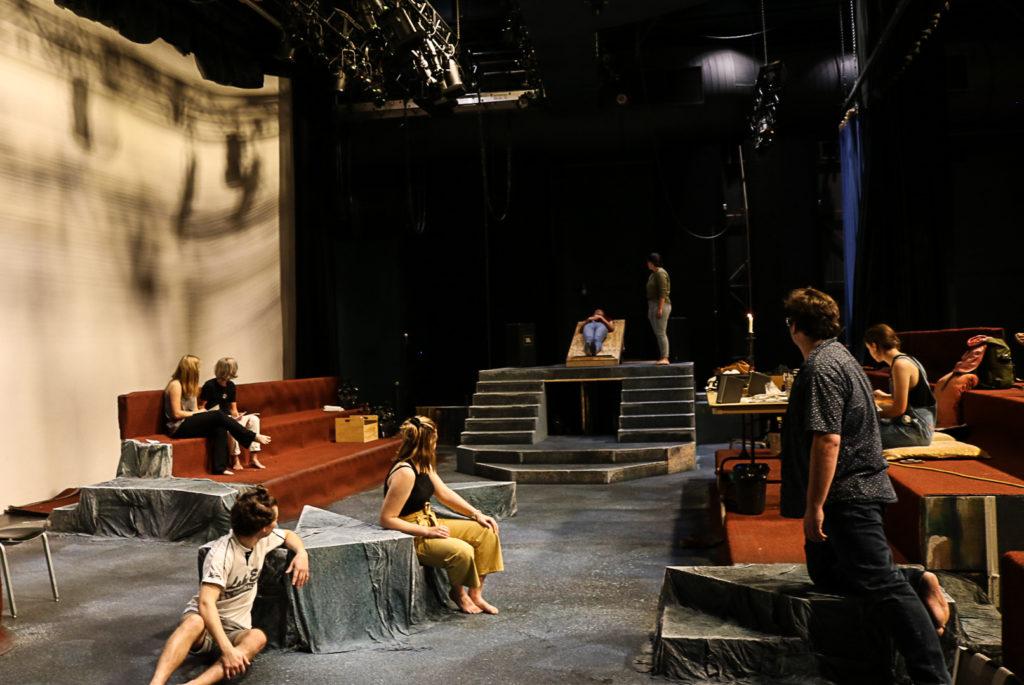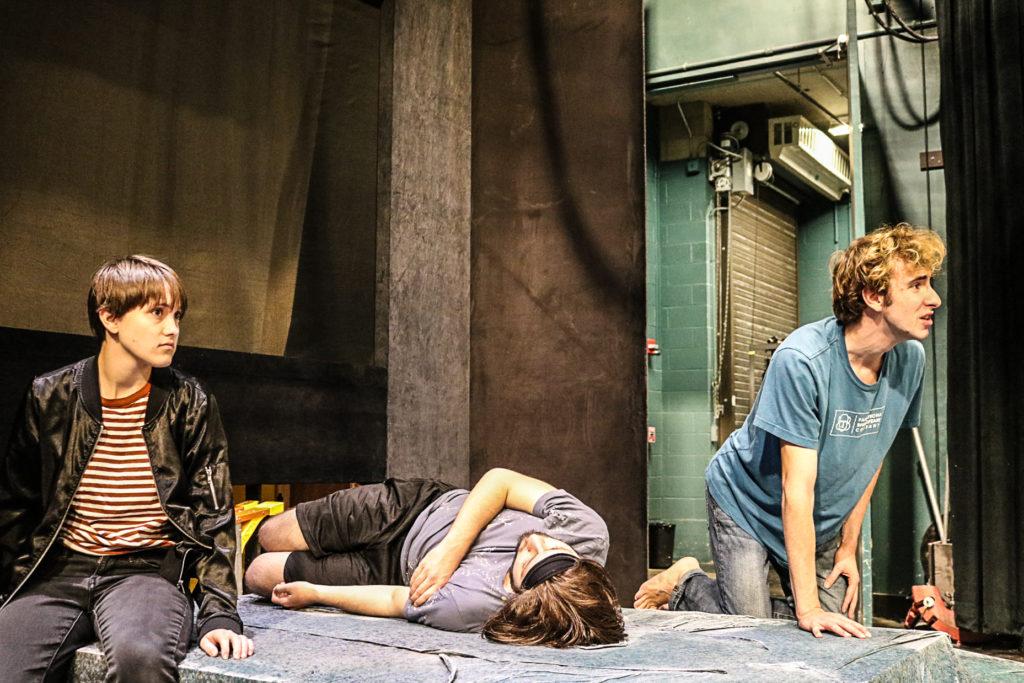
Seamus Heaney’s The Burial at Thebes will open October 11th in Grinnell’s Roberts Theater in Bucksbaum Center for the Arts. The play, a 2004 adaption to Sophocles 2,000-year-old Greek tragedy Antigone, holds a special place in the hearts of the cast and the director as an important political piece whose questioning of power and obedience applies to any generation.
Ellen Mease, senior faculty and director of The Burial at Thebes, has spent the past 42 years directing and teaching at Grinnell. After retiring from teaching last year, she hoped that a great comedy and a great tragedy would be among the last plays she directed. Last semester, Mease directed the Shakespeare comedy Twelfth Night, and her current production accomplishes the goal of the great tragedy.
“I’ve loved this play for a long time, but I’ve never been able to really think about directing it until Seamus Heaney’s translation came available. Its poetry is so compressed, and the swiftness of the storytelling makes the tragic arc so compelling … it’s just a rollercoaster of a play,” said Mease.
The Burial at Thebes begins with the fight for the throne after the death of Oedipus. Eteocles and Polyneices, Oedipus’ sons, slay each other in a battle leading to their uncle Creon’s rise to the throne. Creon’s denial of Polyneices burial leads Oedipus’s daughter Antigone to commit an act of defiance against the state, one that results in sacrifice and death, yet moral dignity.
“Hegel recognized it as the greatest classical play ever written because of the way in which it pits the power of the state and one’s obligation to the larger community of the state against individual consciousness,” said Mease.
“We are the children of the romantics; we are the children of Thoreau, civil disobedience, we are the children of Gandhi and Martin Luther King. I’m especially the child of the protest against the Vietnam War. My mother and I protested atop the steps of the Pentagon … now the cast and I have recognized that an activist like Greta Thunberg has set the standard very, very high as the Antigone figure of our generation.”
Antigone is played by Sophia Noyes ’23.
“The first play I ever saw them do was Antigone. I saw it and I said ‘Ooh, I gotta do that.’ It’s totally full circle. I always knew I wanted to do theatre, but it was one of [the] things that sparked my interaction with them … it’s the first thing I get to do here which is really cool,” said Noyes.
Noyes’ strong stage presence usually leads her towards traditional male roles when acting in classical plays. The Burial at Thebes, however, is an exception.
“We talk a lot about how Antigone is kind of interpreted in modern day as this feminist hero. … It’s interesting because Sophocles doesn’t really lift Antigone up as being this perfect flawlesshero. In Sophocles’ version, they’re both kind of wrong. … I think modern day audiences really root for Antigone because she’s this young woman who is standing up to power and fighting got what she believes is right,” said Noyes.
Noyes is one of nine first-years out of the 13 member cast. Stage manager Sam Stein-De Turck ’22 commented on the show’s unique cast.
“The reason that we have this many first-years is that they’re all qualified. They wouldn’t be in the show if we didn’t think they could do it. They’ve come here with either a lot of experience—we had some people that had an extra page on their audition form for all of the things that they’ve done—and some people who’ve never done it before. They’re all very excited and very ready and willing to do the work. I would count it as a good thing,” said Stein-De Turck.
Mease, who knew the show required an intimate space, wanted to figure out a way to put all of the action in a space that did not require a lot of platforming. Mease worked with guest scenic and lighting designer Stuben Ferrar to design a set that put audience seating within the space of the stage. This intimate tennis court-style theater works well with the chorus of the play, as the audience will be at the forefront of the drama.
“We have a chorus that is on stage pretty much the entire time. In Greek plays, the chorus is a group of people that sort of help tell the story. They’re on stage most of the time, [and] they’ll help the audience understand what’s going on [because] they react to everything going on onstage. It’s like the ensemble but more involved … sometimes they’ll try to intervene, they’re supposed to be sort of the important people in Theoben society who are affected by everything that’s being done politically,” said Stein-De Turck.
Tickets for The Burial at Thebes will be available beginning Monday, Oct. 7th at the Box Office in Bucksbaum.





















































